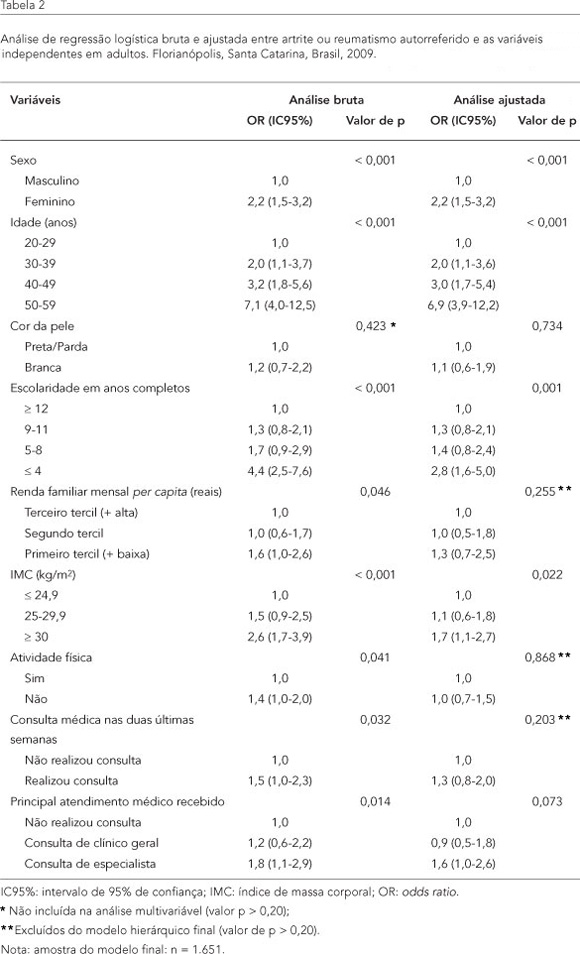The study aimed to estimate prevalence of self-reported arthritis or rheumatism and associated factors. This was a cross-sectional population-based study in Florianopolis, Santa Catarina State, Brazil, with 1,720 adults ranging from 20 to 59 years of age. Presence of self-reported arthritis or rheumatism was analyzed with a hierarchical approach, considering demographic, socioeconomic, and behavioral variables and use of health services. Logistic regression was used to evaluate the association between the outcome and independent variables. Prevalence of self-reported arthritis or rheumatism was 7.7% (95%CI: 6.4-8.9). The odds of self-reported arthritis were twice as high in women, and increased self-reported arthritis was directly associated with BMI > 30kg/m² and increasing age and inversely proportional to schooling. Self-reported arthritis or rheumatism was higher in this sample than in Brazilian adults in general in 2008. The results suggest the need to plan public health policies to address this problem.
Arthritis; Rheumatic Diseases; Adult; Prevalence



